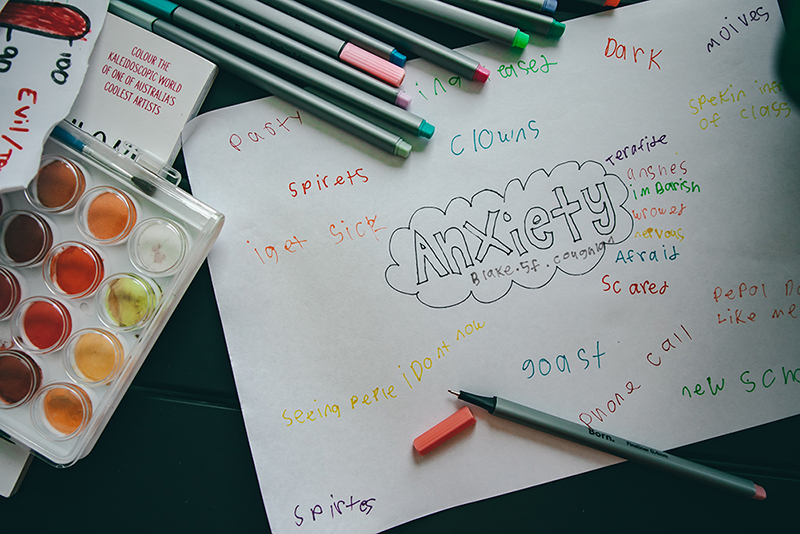Anxiety is a universal human experience, affecting millions of people worldwide. It can manifest in various forms, from fleeting moments of nervousness to chronic conditions like Generalized Anxiety Disorder (GAD). One of the most common questions among those who suffer from anxiety is: “Does it ever go away?” The answer is complex and multifaceted, depending on the individual, the type of anxiety, and the interventions used to manage it.
Understanding Anxiety
Anxiety is a natural response to stress, characterized by feelings of worry, nervousness, or fear. It is the body’s way of signalling potential danger or preparing for important events. While occasional anxiety is a normal part of life, chronic anxiety can interfere with daily activities and reduce the quality of life. Chronic anxiety disorders include GAD, panic disorder, social anxiety disorder, and specific phobias.
Factors Influencing the Persistence of Anxiety
Several factors can influence whether anxiety persists or diminishes over time:
- Genetic Predisposition: Research indicates that genetics can play a significant role in the development of anxiety disorders. Individuals with a family history of anxiety may be more prone to experiencing anxiety themselves.
- Environmental Influences: Life events such as trauma, abuse, or significant stress can trigger or exacerbate anxiety. Conversely, supportive environments and healthy relationships can help mitigate anxiety symptoms.
- Coping Mechanisms: Effective coping strategies, such as mindfulness, exercise, and healthy lifestyle choices, can reduce anxiety. Poor coping mechanisms, such as substance abuse or avoidance behaviours, can prolong or worsen anxiety.
- Therapeutic Interventions: Access to and participation in various forms of therapy, including cognitive-behavioural therapy (CBT), exposure therapy, and medication, can significantly reduce anxiety symptoms. The effectiveness of these interventions can vary from person to person.
Can Anxiety Go Away?
For some individuals, anxiety may decrease or even disappear over time, especially with proper treatment and lifestyle adjustments. Here are some scenarios where anxiety can diminish:
- Successful Treatment: Engaging in consistent therapy, whether it’s CBT, medication, or a combination of both, can lead to significant reductions in anxiety symptoms. Many people experience periods of remission where anxiety is minimal or absent.
- Lifestyle Changes: Adopting a healthier lifestyle, including regular physical activity, adequate sleep, balanced nutrition, and stress management techniques, can reduce anxiety levels. Mindfulness practices, such as meditation and yoga, have also been shown to help manage anxiety effectively.
- Personal Growth and Resilience: As individuals grow and adapt, they may develop greater resilience and better coping strategies. This personal growth can lead to a natural reduction in anxiety over time.
Persistent Anxiety: A Reality for Some
For others, anxiety may be a lifelong challenge that requires ongoing management. Chronic anxiety disorders, like GAD or panic disorder, often necessitate long-term strategies to keep symptoms under control. It’s essential to recognize that having anxiety does not mean a person is weak or flawed; it simply means they have a condition that requires attention and care.
Conclusion
The question of whether anxiety ever goes away does not have a one-size-fits-all answer. For many, anxiety can be significantly reduced or managed effectively through therapy, lifestyle changes, and personal growth. For others, it may persist but can be kept under control with the right strategies. The key is to seek help, be patient, and find what works best for the individual. With proper support and self-care, it’s possible to live a fulfilling life despite anxiety.
Cognitive Behavioural Hypnotherapy in Hertfordshire
What do you REALLY want to change about yourself?
Does stress or anxiety consume your life to the detriment of work, friends and family?
Do you have a constant fear of impending doom even though you’re not sure what you’re actually worried about?
Freedom of choice is a right not a privilege and Behavioural Freedom will free you from the unwanted behaviour that stops you from doing the things you want to do.
I will equip you with the tools you need to positively and permanently change your behaviour using evidence-based Cognitive Behavioural Hypnotherapy (CBH).
- Completely remove anxiety, tension and stress from your life
- Dramatically increase your confidence and self-esteem
- Become more assertive and independent
- Change or control your unwanted habits
- Improve your personal sales performance
- Increase your creativity and self-expression
- Move forward, remove your barriers and be who YOU want to be
Grounded firmly in modern neuroscience, CBH combines Cognitive Behavioural Therapy with hypnosis. It is recognised by the British Medical Association, the American Medical Association and the National Institute of Clinical Excellence as a safe, highly effective and incredibly relaxing experience that has the power to relieve you of the barriers stopping you from doing all the things you’d like to do but for whatever reason, can’t.
You feel stressed, anxious or overwhelmed when the demands made on you are seemingly greater than your ability to cope. All of us at one time or another will suffer from stress or anxiety but Behavioural Freedom will put you firmly back in control of your overworked mind and affect positive, lasting change.
Please contact me today to start the journey back to behavioural freedom.

